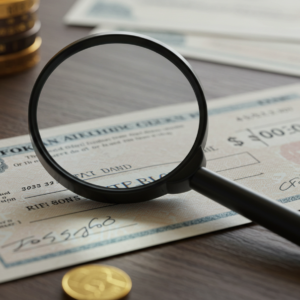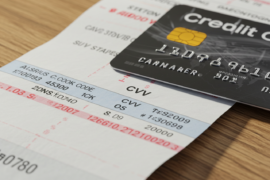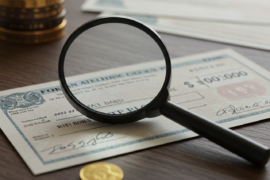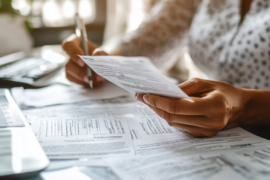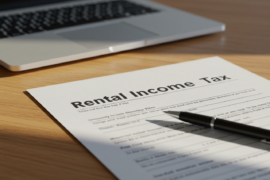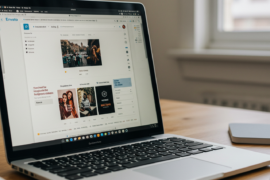This article may contain references to products or services from one or more of our advertisers or partners. We may receive compensation when you click on links to those products or services. Nonetheless, our opinions are our own.
- Key Highlights
- Introduction
- Understanding Sole Proprietorship
- Conclusion
- Frequently Asked Questions
- Recommended Reads
Key Highlights
- A sole proprietorship is the easiest way to run a business. It combines your own and business risks.
- It requires very little paperwork, usually just local licenses and permits.
- You put business income and losses on your tax return. You use Schedule C for this.
- Owners are responsible for all business debts.
- Consider the legal and financial issues if your business has big risks.
Introduction
Many new business owners in the United States find a sole proprietorship attractive because it is simple and low-cost to start. A sole proprietorship is a business that one person owns and runs. There is no legal divide between the owner and the business, making it one of the easiest ways to begin working legally.
Understanding Sole Proprietorship
When you operate your business as a sole proprietor, you are viewed as the same as your business. This structure allows you to keep all the profits. However, it also means you are entirely responsible for any debts and duties related to the business.
It may look easy, but it’s essential to understand how this setup affects your taxes, legal risks, and everyday tasks.
Definition and Basic Overview
A sole proprietorship is a kind of business owned by one person. It begins automatically when you start working without making a different legal setup.
Because there is no legal separation, business and personal money are linked. Creditors can claim your personal belongings if your business has debt or legal problems.
Why Choose a Sole Proprietorship?
Many people choose this structure because it is fast, cheap, and easy to manage. It usually does not require official registration with the state. Filing taxes is also easier. You can show your income and expenses on Schedule C of your Form 1040.
However, the main issue is that you might have personal risk. You could lose your personal property if your business gets into legal or money trouble. If your company has a lot of risk, a setup that protects you, like an LLC, could be a better choice.
Starting a Sole Proprietorship: Important Requirements
You may not always need to register your business officially. However, you might need some local or state licenses and permits. It depends on what your business is doing.
If you run a business under a name that isn’t yours, you must register a “Doing Business As” (DBA) name with your local or state authority.
Necessary Documentation and Where to Obtain It
Documentation needs can vary depending on the state, industry, and region. Some typical needs include:
- Business Name Registration (DBA): You need this when your business name is different from your legal name. You can register it at the county clerk’s or state offices.
- Employer Identification Number (EIN): You might not always need this if you are the only owner. However, you need it if you hire people or want to keep your social security number private for business banking. You can get it from the IRS.
- Licenses and Permits: These depend on your business’s activities and location. For support, you should check with your city hall, county clerk, or the Small Business Administration (SBA).
Understanding the Costs Involved
Starting a sole proprietorship does not cost a lot. However, you should plan for several costs. You will have one-time costs like licenses or name registrations. There are also ongoing duties, like paying taxes.
You must report your business income and expenses on your income tax return. Use Form 1040 and Schedule C for this. You will also have to pay self-employment tax. This tax helps cover your Social Security and Medicare payments.
| Expense Category | Typical Cost Range |
|---|---|
| Business Licenses/Permits | $50–$500 |
| Registered Agent | Not Required |
| Self-Employment Tax | Varies by income |
| Estimated Quarterly Taxes | Varies (based on revenue) |
Costs can vary based on your location, your business, and your company’s earnings. It’s important to budget wisely and keep accurate records. This will help you follow the rules and earn a good profit.
How to Start Your Sole Proprietorship: A Simple Guide
Here’s how to begin, step by step. Requirements can change depending on where you are, so always check the details with your local government or a small business advisor.
Step 1: Choose a Business Name and Register It
You can use your real name for your business. But if you want a different name, you must register a DBA (doing business as) name.
- Check if the name is available with your local county clerk or state office.
- Officially register the name and be aware of any renewal requirements (some states need renewal now and then).
- Ensure the name follows the naming rules in your state or local area.
Step 2: Obtain Necessary Permits and Licenses
You may need this depending on your field and where you live.
- Health permits are needed for food services.
- Contractors need licenses for construction.
- Home occupation permits are for people running a business from their home.
Check the rules for your business at your local city hall, county office, or the SBA. Not having the right permits can result in fines or the shutdown of your business.
Step 3: Set Up a Business Bank Account
Though it is not required by law, having a separate business bank account can:
- Help you keep your home and work money matters separate.
- Make it easier to manage taxes and track spending.
- Show professionalism to clients and vendors.
To open an account, you typically need:
- Your Social Security Number (or EIN)
- A copy of your DBA certificate (if you have it)
- Any business licenses you need
The IRS does not require having different accounts, but having one is a brilliant idea.
Conclusion
A sole proprietorship is an easy and low-cost way to start a business. This choice is great for freelancers, side workers, and small business owners. However, you should think about the personal risks involved. This is important for businesses that could have legal or money issues. You can start your business with good ideas by learning about local laws, getting the right permits, and managing your money well.
Frequently Asked Questions
What is the main advantage of starting a sole proprietorship?
The main advantages are its simplicity and low cost. In most cases, you don’t need to register with the state, and you report income on your personal tax return, making setup and tax filing easier.
Do I need a business license or permit to run a sole proprietorship?
Yes, depending on your business type and location, you may need local or state licenses and permits. Check with your city hall, county clerk, or the SBA.
Am I personally liable for business debts and legal issues?
Yes. In a sole proprietorship, there is no legal separation between you and the business. You are personally responsible for all business debts and liabilities.
How do I report income and pay taxes as a sole proprietor?
You report business income and expenses using Schedule C attached to your Form 1040. You’re also responsible for self-employment taxes, including Social Security and Medicare contributions.

Reviewed and edited by Albert Fang.
See a typo or want to suggest an edit/revision to the content? Use the comment form below for feedback.
At FangWallet, we value editorial integrity and open collaboration in curating quality content for readers to enjoy. Much appreciated for the assist.
Did you like our article and find it insightful? We encourage sharing the article link with family and friends to benefit as well - better yet, sharing on social media. Thank you for the support! 🍉
Article Title: The Cheapest Way to Set Up a Sole Proprietorship in Any State
https://fangwallet.com/2025/04/15/set-up-a-sole-proprietorship/The FangWallet Promise
FangWallet is an editorially independent resource - founded on breaking down challenging financial concepts for anyone to understand since 2014. While we adhere to editorial integrity, note that this post may contain references to products from our partners.
The FangWallet promise is always to have your best interest in mind and be transparent and honest about the financial picture.
Become an Insider
Editorial Disclaimer: The editorial content on this page is not provided by any of the companies mentioned. The opinions expressed here are the author's alone.
The content of this website is for informational purposes only and does not represent investment advice, or an offer or solicitation to buy or sell any security, investment, or product. Investors are encouraged to do their own due diligence, and, if necessary, consult professional advising before making any investment decisions. Investing involves a high degree of risk, and financial losses may occur including the potential loss of principal.
Source Citation References:
+ Inspo
Investopedia. (n.d.). Investopedia. https://www.investopedia.com/
Wikipedia, the free encyclopedia. (n.d.). https://www.wikipedia.org/
Fang, A. (n.d.). FangWallet — Personal Finance Blog on Passive Income Ideas. FangWallet. https://fangwallet.com/
Google Scholar. (n.d.). Google Scholar. https://scholar.google.com/
There are no additional citations or references to note for this article at this time.


